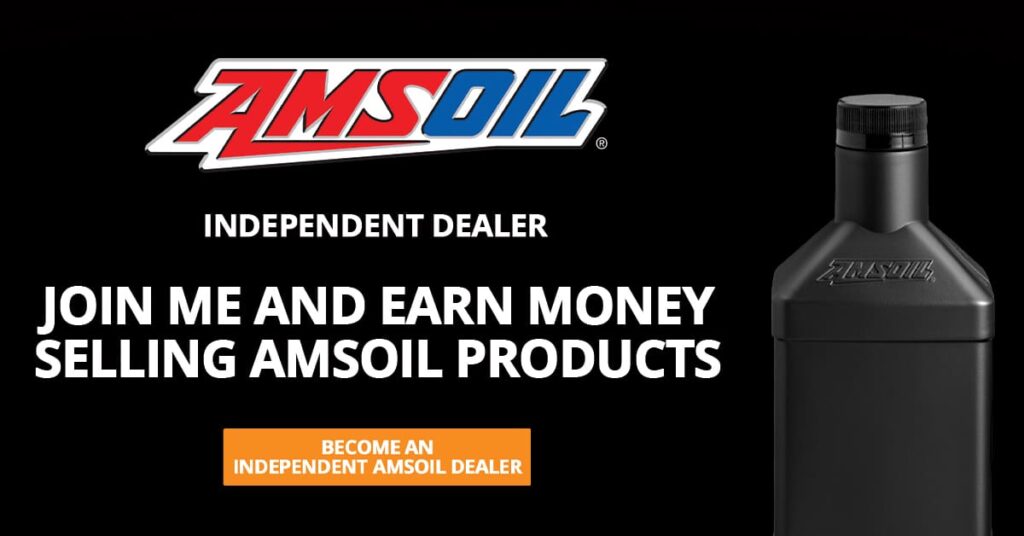Ever felt the sting of an unexpected car repair bill? Unplanned vehicle maintenance can be a real headache and a drain on your wallet. Ignoring crucial automotive systems until they fail might save you some time and money now, but the long-term impact can be much worse. Regularly attending to often-overlooked tasks can not only prevent expensive repairs but also boost your car’s overall performance. Understanding these key automotive maintenance tips can keep your vehicle running smoothly and ensure it has a longer lifespan. So, let’s dive in and keep your car in top shape.
Flush the Coolant System
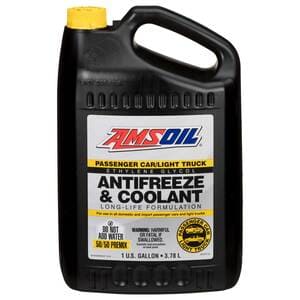
Nearly 40 percent of engine failures are linked to issues with the cooling system. Despite this, it’s likely your car’s cooling system hasn’t seen maintenance in years. Ignoring this critical component can lead to significant, expensive repairs and reduce your vehicle’s overall lifespan. Regular maintenance isn’t just a suggestion; it ensures your cooling system can effectively manage engine temperature, which cuts down the risk of catastrophic overheating. Many drivers underestimate the importance of this system, thinking it’s not as crucial as other parts. However, neglecting it could be a costly mistake. Routine checks and services could save you thousands in unexpected engine repairs and keep your car running smoothly for many more miles.
When gunk or muck builds up, it can clog the radiator, heater core, or fluid channels, leading to engine overheating and expensive repairs. This accumulation obstructs the smooth flow of coolant, reducing the engine’s ability to maintain proper temperature. As the anti-corrosion agents in the coolant get used up, the metal parts of the engine and cooling system become susceptible to rust and corrosion. Over time, this can cause severe damage, potentially leading to system failure. Critical components become exposed and wear out faster, accelerating breakdown and increasing the likelihood of costly repairs. Furthermore, this deterioration can lead to inefficient engine performance and higher fuel consumption, further compounding the problem.

Regularly cleaning your cooling system and refilling it with high-quality organic-acid antifreeze/coolant is crucial for maintaining your vehicle’s optimal performance and extending its lifespan. This routine task prevents the accumulation of harmful deposits, which can obstruct proper heat dissipation. Efficient heat transfer is vital to ensure your engine operates within safe temperature ranges. Proper maintenance also provides a protective barrier against corrosion of the radiator and other vital components, reducing the risk of malfunction due to rust or scaling. Additionally, it helps prevent overheating, a common cause of engine failure that often results in expensive repairs. Ignoring this essential upkeep can lead to decreased engine efficiency, higher operating temperatures, and potential breakdowns, ultimately compromising your vehicle’s reliability and costing you more in the long run. Incorporating this simple procedure into your regular maintenance schedule not only saves money but also enhances your vehicle’s durability and performance.
Avoid the typical “green” coolants you find at most auto shops and stores. These coolants contain inorganic salts like nitrites, phosphates, and silicates that degrade quickly, often in less than two years. When these salts break down, they lead to common cooling system issues, such as scale deposits and sludge buildup. These problems can compromise your engine’s efficiency and longevity. Due to these drawbacks, most car manufacturers now use alternative formulations in newer models, steering clear of inorganic salts to ensure better performance and longer-lasting protection.
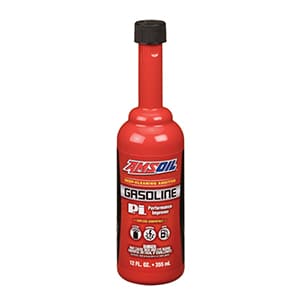
Instead of inorganic salts, modern coolants often rely on organic acid technology (OAT) or hybrid organic acid technology (HOAT). These formulations are designed to be more stable, reducing the risk of scale and sludge formation. They offer enhanced corrosion protection for critical engine parts, ensuring your cooling system stays clean and efficient. Unlike older coolants, OAT and HOAT mixtures can last up to five years or 150,000 miles, providing superior longevity.
While some argue that traditional green coolants are cheaper and easier to find, the cost savings are often negated by the increased maintenance and potential repair costs. By opting for advanced coolant formulations, you’re not only safeguarding your engine but also reducing downtime and long-term expenses. Therefore, it’s crucial to choose the right coolant to maintain your vehicle’s optimal performance and extend its lifespan.
Change Transmission Fluid
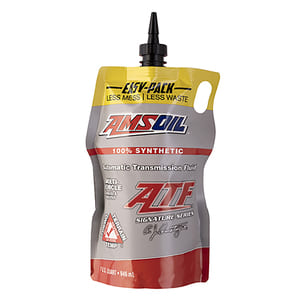
Replace transmission fluid regularly for optimal vehicle performance. Changing motor oil sets the standard for proper car maintenance, and there’s no denying its importance. Still, many drivers neglect the transmission until they experience rough shifting, slipping gears, or even a complete breakdown. Transmission issues often start small but grow worse over time, leading to costly repairs or replacements. Proactively maintaining your transmission fluid can help avoid these problems. Regular checks and timely fluid replacements ensure smoother gear shifts and extend the lifespan of your vehicle’s transmission system.
Rebuilding an automatic transmission can quickly exceed $2,000, a substantial expense for most car owners. However, opting for a fluid flush and change offers a far more cost-effective solution. This maintenance not only extends the transmission’s life but also significantly enhances its performance. While many modern vehicles come with “filled-for-life” transmissions, this term typically means they are filled to last only as long as the warranty period. It’s crucial to understand that regular maintenance for these “filled-for-life” units remains essential. Ignoring this can lead to costly repairs down the line, making routine checks and fluid changes a smart preventive measure for long-term vehicle health.
Change Brake Fluid

Over time, it’s common for water to seep into brake fluid, which significantly lowers its boiling point and can result in brakes feeling mushy during operation. This issue arises because water contamination alters the fluid’s physical properties, making it less effective under high temperatures. In addition, the anti-rust additives in brake fluid gradually deteriorate through normal use, reducing their ability to protect against corrosion. This increased risk of rust can lead to damage or malfunction of critical brake components like calipers and rotors, potentially compromising vehicle safety. Regular maintenance and timely replacement of brake fluid are essential to ensure optimal brake performance, prevent costly repairs, and maintain the integrity of the braking system. Without proper attention, the cumulative effects of water contamination and additive degradation could result in unreliable braking and higher repair costs in the long run.
When you replace your brake pads, it’s important to also swap out the DOT 3 brake fluid. This practice ensures your braking system remains free from moisture, which can infiltrate the system and cause rust and corrosion over time. Regularly changing the brake fluid keeps the hydraulic components functioning optimally, thereby maintaining top-notch braking performance. It also extends the lifespan of various braking elements, including calipers and master cylinders. On the flip side, neglecting this simple maintenance step can lead to a noticeable decrease in stopping power. Over time, the presence of moisture in the brake fluid can lower the fluid’s boiling point, resulting in brake fade during high-temperature situations. Ignoring fluid changes can also cause internal components to deteriorate, leading to more frequent and costly repairs. For these reasons, making fluid replacement a routine part of your brake maintenance can save you time, money, and potential safety hazards on the road.
Replace DOT 4 brake fluid, commonly used in racing or high-performance vehicles, every two years to ensure optimal braking performance. This specialized brake fluid is engineered to withstand higher temperatures and pressures, making it suitable for demanding driving conditions like track days or spirited driving on twisting roads. Despite its benefits, DOT 4 fluid can absorb moisture from the air over time, which reduces its boiling point and effectiveness. Moisture absorption can lead to vapor lock, where brake fluid vaporizes, causing a loss of hydraulic pressure and potential brake failure when you need stopping power the most. By replacing the brake fluid every two years, you maintain the hydraulic system’s integrity, preserve braking efficiency, and ensure safety on the road. Consistent maintenance prevents issues like corrosion within the braking system, which can damage components such as brake lines and calipers, leading to costly repairs. Regularly scheduled fluid replacement is a small investment that provides significant returns in braking performance and vehicle safety.
Change Gear Lube
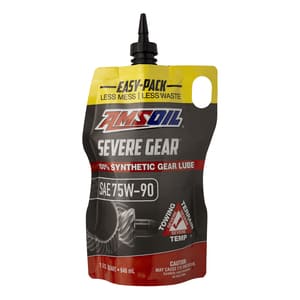
You often overlook your vehicle’s differential because it’s tucked away and not visible in everyday use. Despite this, car manufacturers are constantly locked in fierce competition to produce trucks with remarkable towing strength, boasting capacities that can almost pull a house. Yet, the gears and bearings within the differential, which manage all this immense power, have largely remained unchanged in design and function. These components quietly bear the brunt of increasing towing demands, withstanding immense stress to ensure your truck operates smoothly. While advancements in engines and towing hitches grab all the attention, the reliability of the differential’s inner workings is the unsung hero in the entire system.
Some car manufacturers have deliberately reduced the gear lube levels in the rear differential to reduce mechanical drag and enhance fuel efficiency. However, to make sure your differential remains in peak condition for a longer period, it’s crucial to change the gear lube at recommended intervals. This is especially important if you frequently tow heavy loads or haul substantial cargo, which can put extra stress on the differential. Regular maintenance not only helps in preventing wear and tear but also ensures optimal performance of your vehicle under demanding conditions. Don’t overlook this essential upkeep task, as failure to maintain proper gear lube levels could lead to costly repairs or even complete differential failure.
Power Steering Service

One of the most recognizable—and irritating—noises your car can produce when something’s off is the high-pitched squeal from the power steering pump. This sound can indicate a variety of issues that shouldn’t be ignored. First off, air might be trapped in the system, disrupting the fluid flow and causing an annoying squeal. This can happen if there’s been a recent repair or fluid change without properly bleeding the system. Alternatively, the pump itself could be worn out from extensive use. When the internal components of the pump degrade over time, it leads to reduced efficiency and more noise.
Another potential issue could be the condition of the steering fluid. Over time, the steering fluid can degrade, losing its lubrication qualities, and causing increased friction within the pump, which exacerbates the squeal. Degraded fluid may also appear darker and have a burnt smell, which are signs it needs to be replaced. Each of these issues requires prompt attention to ensure your vehicle operates smoothly and safely. Ignoring these signs could lead to more severe problems down the road, including complete power steering failure. Thus, regular maintenance and timely repairs are crucial for the optimal performance of your vehicle.
Just like any lubricant, power steering fluid gathers dirt, moisture, and other particles over time. These contaminants can compromise the efficiency of the system, leading to potential damage. In addition, the fluid ages and deteriorates, which diminishes its ability to lubricate and protect the power steering components effectively. Therefore, it’s crucial to replace it at the recommended intervals. By doing so, you’re ensuring that your steering system remains in optimal condition, preventing costly repairs and reducing the likelihood of noisy steering issues. Ignoring this maintenance can lead to more wear and tear, ultimately affecting the vehicle’s performance and safety.
Check and Replace Your PCV Valve
When your engine runs, combustion gases create pressure within the crankcase. Historically, these pressurized gases would escape into the atmosphere through seals and gaskets, contributing to environmental pollution and reducing engine efficiency. Over time, this led to the buildup of sludge and carbon deposits, further diminishing the engine’s performance. Today, we employ positive crankcase ventilation (PCV) systems to address this issue more effectively. A PCV system works by channeling the pressurized crankcase gases back to the intake manifold. These gases are then burned off during combustion, thereby reducing harmful emissions and improving overall engine performance. By recycling the gases in this manner, modern engines operate more cleanly and efficiently compared to older models that lacked this technology. Additionally, the PCV system helps maintain optimal pressure within the crankcase, preventing oil leaks and extending the engine’s lifespan. This advancement not only benefits the environment by lowering emissions but also ensures that engines run more reliably and with greater longevity.
When unburned gases pass through the PCV valve, they can build up and cause the valve to stick. This issue can increase oil consumption and reduce fuel efficiency as the faulty valve disrupts normal engine function. Fortunately, the PCV valve is one of the simplest and least expensive engine parts to replace. It typically costs just a few dollars and is conveniently located on top of the valve cover, making it easy to inspect and swap out if necessary.
To check if the PCV valve is functioning, simply remove it and shake it. If you hear a metallic click, the valve is moving freely and working properly. If there’s no sound or the valve feels sluggish, it indicates the valve needs to be replaced to restore your engine’s performance. While some might suggest cleaning a sluggish PCV valve instead of replacing it, cleaning may not fully resolve the issue, leading to recurring problems. Therefore, replacing the valve is a more reliable solution, ensuring better oil management and fuel efficiency over the long term. Regular checks and timely replacements of the PCV valve can maintain optimal engine performance and longevity.
Replace the Spark Plugs
An experienced mechanic who specialized in old cars and trucks once sat me down to share some wisdom. He told me that, at its core, the internal combustion engine is pretty straightforward. All it really needs is the precise synchronization of fuel, air, and spark. He compared it to a finely tuned orchestra where every instrument must play its part at the exact right moment. Without this perfect timing, the whole system falters, just like a band that can’t keep the beat. This simplicity, he argued, is what makes working on these engines so satisfying.
Spark plugs are vital in gas engines, as they deliver the electrical charge needed to ignite the fuel and air mixture in the combustion chamber. These compact but essential parts function in a high-temperature environment and are exposed to combustion gases, leading to gradual wear and tear. Over time, such harsh conditions can cause spark plugs to become dirty or worn out, reducing their efficiency in igniting the mixture. This inefficiency may cause misfires, wasted power, and a significant drop in fuel economy.
To prevent these issues and maintain optimal engine performance, it’s crucial to inspect and replace the spark plugs regularly, following the intervals outlined in your owner’s manual. Routine maintenance ensures not only proper combustion but also contributes to the engine’s longevity and improved fuel economy. While some may argue that modern engines can go longer without spark plug maintenance due to advancements in materials, neglecting this simple upkeep can still lead to more significant problems down the line. By keeping the spark plugs in good condition, you safeguard the engine’s functionality and efficiency, ultimately protecting your investment and ensuring smooth operation.

Clean the Fuel Injectors
Over time, deposits that impede performance build up on your engine’s fuel injectors, valves, and within the combustion chamber. These deposits can originate from impurities in the fuel or result from incomplete combustion processes. Modern injectors are engineered with high precision, and even minute deposits can significantly alter the spray pattern, leading to inefficient fuel atomization. Such discrepancies result in reduced engine power, as the combustion process is no longer optimal, and fuel efficiency diminishes. Furthermore, these deposits can lead to uneven fuel distribution, causing hotspots and cold spots within the combustion chamber, which results in incomplete combustion and elevated emissions.
Left unchecked, the cumulative effect of these deposits can lead to rough idling, poor acceleration, and even engine knocking. Regular maintenance, including periodic cleaning of fuel injectors and valves, combined with the use of high-quality fuel additives, can mitigate these issues effectively. By maintaining cleanliness in the fuel system, the injectors and valves can function as intended, ensuring that the combustion process remains efficient. This not only preserves engine power and fuel efficiency but also reduces the vehicle’s environmental impact by lowering harmful emissions. Regular use of fuel additives that clean and protect the injectors can extend their lifespan, resulting in long-term savings on maintenance costs.
Direct-injection engines, with their injectors situated directly in the combustion chamber, face major challenges due to relentless exposure to extreme heat. Over time, these engines typically see a drop in performance, including reduced power output, slower throttle response, decreased fuel efficiency, and overall reduced drivability. This happens because heat causes deposits to build up on the injectors, obstructing fuel flow.

To combat these issues, it’s essential to routinely treat your fuel with a high-quality additive like AMSOIL P.i.® Performance Improver Gasoline Additive. This additive is meticulously crafted to clean deposits from the injectors, allowing them to function efficiently. Neglecting this maintenance step can lead to costly repairs as the injectors become increasingly clogged and less effective. Moreover, for ongoing vehicle care, using an upper cylinder lubricant is advisable. This lubricant helps sustain horsepower and maintain optimal performance by reducing friction and wear on internal components.
Some might argue that regular maintenance with additives isn’t necessary, but ignoring these practices can lead to a marked decline in engine longevity and efficiency. Investing in products like AMSOIL P.i.® Performance Improver Gasoline Additive can save you from more expensive engine repairs in the future and ensure your vehicle runs smoothly for years to come.
Keep Your Wallet Happy and Your Car Happier
By embracing these automotive maintenance tips, you can dodge the stress and expense of sudden car repairs. Regular check-ups and attention to detail ensure that your vehicle remains in peak condition. Don’t wait until something breaks down—stay proactive and enjoy a smoother, safer ride every time.
